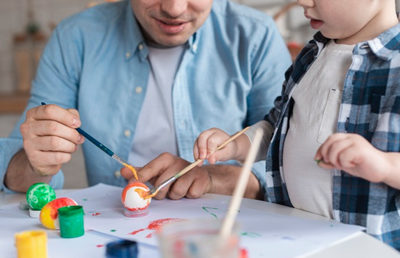
If you are reading this, chances are you are either a parent or a teacher and are concerned about the holistic development of your ward. You believe that having a healthy curiosity is integral to the all-round development of children. You are absolutely right!
While not exclusive to humans, curiosity is one of the fundamental characteristics of our cognition. It is the quality that has led our species to ask: Who? What? When? Where? How? Children are naturally curious. They start exploring their environments the moment they are born. For centuries, learning has been codified for the sake of convenience, efficiency, and uniformity. The result is that much before adulthood, children learn to curb creativity and exploration.
What can you as a guardian do to help a child retain her nature-endowed spirit of inquiry? Here are some pointers.
Respect Your Child’s Inquisitiveness
As a guardian, you must respect the fact that inquisitiveness is one of the most critical mental faculties of children. It is this trait that leads them to draw meaning in their world—what it means to be good or bad, to succeed or fail, to create or destroy. Try not to suppress your child’s curiosity by ignoring or admonishing them. If you do that, they will learn that inquisitiveness is a negative trait and quash it.
Be a Role Model for Your Child
Understand that guardians are the most important behavioural templates that children have. Simply put, they copy their parents, elders, and teachers. So, as someone who is a role model for their child, you must display the characteristics that you want your child to imbibe. If you yourself are devoid of all curiosity, if you yourself are risk-averse and regimented, chances are your child will learn and retain that behaviour.
Pick up a hobby, travel, be excited about things, reach deep into your own childhood and revisit your passions—books, art, music, dance, games, human connections. All these activities, at a basic level, are sustained only due to our thirst for new knowledge and novel experiences. Indulge in and enhance your own spirit of inquiry and simply let your child follow you.
Create an Ecosystem of Exploration
Surround your child with objects and experiences that will kindle their natural curiosity. Make your home an ecosystem of exploration—of books, objects, media, puzzles, games, and so on. But here is the caveat: if you just hoard things, it is pointless. You must spend time exploring these with your child: read to them, play with them, solve puzzles together, show and tell objects of interest, like fossils or electronics or historical artefacts. Take them to museums, art shows, trade fairs, science centres. Help them understand the complexities and beauty of nature and human creations. Facilitate, don’t direct.
Every Child Is Unique
Remember that every child is unique. Just because your friend’s daughter shows interest in books does not mean that your child should too. There are no rules about this! Your child’s natural curiosity may veer her towards aeronautics or bead weaving or stock trading. Facilitate her, encourage her, create an ecosystem in which she can herself find her way to that which quenches her curiosity the most. It may one day become her lifelong passion and even her occupation.
A child may have been made from the mould of her parents, but she is in no way their copy.




